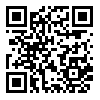مجله رویش روانشناسی از دادن گواهیهای کاغذی معذور است. لطفا تقاضا نکنید. همه گواهی ها در صفحه شخصی کاربران موجود است.
year 12, Issue 4 (Summer 2023 2023)
Rooyesh 2023, 12(4): 25-32 |
Back to browse issues page
Download citation:
BibTeX | RIS | EndNote | Medlars | ProCite | Reference Manager | RefWorks
Send citation to:



BibTeX | RIS | EndNote | Medlars | ProCite | Reference Manager | RefWorks
Send citation to:
Veismoradi M, Borjali A, Rafezi Z. Predicting Resilience in nurses based on Corona Anxiety and Cognitive Flexibility. Rooyesh 2023; 12 (4) :25-32
URL: http://frooyesh.ir/article-1-4401-en.html
URL: http://frooyesh.ir/article-1-4401-en.html
1- M.A. in Clinical Psychology. Faculty of Psychology and Educational science, Allameh Tabataba’i University. Tehran, Iran
2- Professor of Clinical Psychology, Department of Clinical and General Psychology, Faculty of Psychology and Educational Sciences, Allameh Tabataba’i University, Tehran, Iran. , borjali@atu.ac.ir
3- Assistant Professor, Department of Clinical and General Psychology, Faculty of Psychology and Educational Sciences, Allameh Tabataba’i University, Tehran, Iran.
2- Professor of Clinical Psychology, Department of Clinical and General Psychology, Faculty of Psychology and Educational Sciences, Allameh Tabataba’i University, Tehran, Iran. , borjali@atu.ac.ir
3- Assistant Professor, Department of Clinical and General Psychology, Faculty of Psychology and Educational Sciences, Allameh Tabataba’i University, Tehran, Iran.
Abstract: (745 Views)
The aim of this research was to predict nurses' resilience based on Corona's anxiety and cognitive flexibility. this research was basic research and in regard to procedure, it was a correlation study. The study community included all the nurses working in the hospitals of Kermanshah in 2021-2022. that among them 360 nurses were selected as samples by available sampling. Research questionnaires included: The resilience questionnaire by Connor and Davidson (2003), the Corona Anxiety questionnaire by Alipour et al (2020), and the Cognitive Flexibility questionnaire by Dennis and Vandorwal (2010). Pearson's correlation test and multiple regression test were used for data analysis. The results showed that there is a significant correlation between corona anxiety with resilience(p‹0/01 and r=0/584) and cognitive flexibility with resilience(p‹0/01 and r=0/221) and subscales of physical symptoms of corona anxiety(B=-0/168 and p=0/001) and perception of control(B=0/498 and p=0/001) and perception of different options(B=0/194 and p=0/001) were able to predict 40/5% of changes in resilience. Therefore, by improving cognitive flexibility and reducing corona anxiety, you can take steps towards improving resilience.
Type of Article: Research |
Subject:
Clinical Psychology
Received: 2023/01/28 | Revised: 2023/08/14 | Accepted: 2023/04/14 | ePublished: 2023/08/14
Received: 2023/01/28 | Revised: 2023/08/14 | Accepted: 2023/04/14 | ePublished: 2023/08/14
Send email to the article author
| Rights and permissions | |
 |
This work is licensed under a Creative Commons Attribution-NonCommercial 4.0 International License. |







